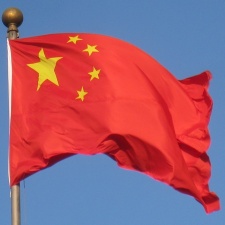Daniel Ahmad is an analyst at Niko Partners.
This article was originally published on Daniel Ahmad's blog.
With the GMGC Global Games Congress, a conference and platform for game developers, publishers, investors, distributors, and other companies to form lasting co-operations through access to new fervent markets, taking place in Beijing recently I thought I’d look back at what is without a doubt the biggest change to take place in China’s mobile games industry to date.
On July 1st 2016, new regulations came into effect that required all mobile games to be approved before being published in China. I’ve already published an article on what those regulations covered and I recommend reading it first if you’re unfamiliar with the changes.
It’s now been over half a year since the new regulations came into effect and as this is by far the most comprehensive set of regulations governing mobile games to date, I thought I’d take a look back and see what’s changed since then.
Since the new regulations have come into effect we’ve seen the SAPPRFT ramp up the number of games it has approved for mobile devices.
110 mobile games were approved in July, 447 in August, 504 in September, 491 in October, 1,179 in November, 845 in December, 974 in January and around 650 have been approved as of February 24th. In total that’s around 5,200 games that have been approved over the past eight months.
SAPPRFT has promised to make the approval process easier and shorter and that’s something they need to do if we’re ever going to see the annual number of mobile games released exceed 15,000 like it did back in in 2015.
Whilst we can see that SAPPRFT has ramped up approval times, most games that aren’t simple or casual games still take a good three months or more before being approved.
It’s not just local publishers like Tencent and NetEase that were affected, all foreign developers will need to adhere to these new regulations too.
Game companies like Tencent and NetEase have been keen to get ahead and have around half a dozen games each that have been approved but aren’t set to release until later this year.
Foreign Developers
It’s not just local publishers like Tencent and NetEase that were affected by these new regulations, all foreign developers will need to adhere to these new regulations too.
Not only do foreign developers need to register copyright and the game itself, they will now need to work with a publisher in China to obtain a license number before they can bring the game to any app store.
This has been the case for Android stores in the past, but on Apple’s iOS store developers used to be able to publish their game in China through iTunes connect. Foreign developers who have logged on to iTunes connect recently will no doubt have seen this message.
"Chinese law now requires online games to secure an approval number from the State Administration of Press, Publication, Radio, Film, and Television. You can enter your game's approval number and date in the Notes field of the App Review information section. To learn more, view the full text of the regulation."
Foreign developers who plan to distribute their game in China will now need to work with a Chinese publisher (or set up a JV) so that they can localise the game, obtain approval for the game, market the game and operate the game in China.
Other options include working with a publishing entity directly or utilising a new service such as Unity’s publishing tool for the Xiaomi app store.
The approval of the game itself, which is done through a publishing entity will always take a minimum of 90 days to complete as foreign owned games are not eligible for the fast track publishing process that SAPPRFT offers for casual games developed by a Chinese company.
However, before a developer even gets to the stage of submitting the game for approval there is a few things they should know-
Censorship
As every game must now be approved by SAPPRFT there is an element of censorship involved at the game level. Any Chinese publisher that a foreign developer works with in China is going to ask them to make changes and this is so that SAPPRFT can approve the game straight away, rather than reject the game over and over again.
It’s best to read and understand the below as these standardised rules will very quickly let foreign developers understand if their game will make it in China. Games like Grand Theft Auto for example are outright banned in China and no amount of small changes to that game will ever lead to it being approved.
All Online games must not have:
- Anything that violates China’s constitution.
- Anything that threatens China’s national unity, sovereignty, or territorial integrity.
- Anything that harms the nation’s reputation, security, or interests.
- Anything that instigates racial/ethnic hatred, or harms ethnic traditions and cultures.
- Anything that violates China’s policy on religion by promoting cults or superstitions.
- Anything that promotes or incites obscenity, drug use or violence.
- Anything that harms public ethics or China’s culture and traditions.
- Anything that insults, slanders, or violates the rights of others.

No English
One of the other regulations that foreign developers need to be aware of is that there cannot be any English words or letters in the game at all. This rule also applies to any language that isn’t Simplified Chinese. This rule has actually been in place for a number of years but has only started being enforced since the new regulations started operating in July 2016.
The policy is extremely strict and we’ve seen games be rejected by SAPPRFT because they used identifiers like “HP” for health points and “KO” for knock out. SAPPRFT acknowledges that only certain English words such as brand names or trademarks can be used. Identifiers such as “OL” for Online and “VR” or “HD” for Virtual Reality and High Definition are also okay.
One of the other regulations that foreign developers need to be aware of is that there cannot be any English words or letters in the game at all.
But in general, it’s best to fully translate everything in the game to Simplified Chinese. It should also be noted that all voice overs, subtitles and even the games name itself will need to be in Simplified Chinese as well.
Other best practices
The censorship segment above contains some vague rules about what games shouldn’t have in order to be approved in China.
But we’ve noticed some more specific points that foreign developers will need to adhere to in order to have their game successfully approved for sale. These points are outlined below:
- All games must have a “Healthy Game Advise” warning screen in the game. Similar to those ‘take a rest every 15 minutes’ disclaimers you used to get before playing a console or PC game.
- In game chat features must have filters applied to ban sensitive words. This also applies to any sort of text input such as users being able to choose a name for their character.
- Game characters must not be wearing revealing clothing or see through clothing. This applies to both male and female characters and also applies to game advertising too.
- The game must not include negative or derogatory words. Phrases such as “Hacked to death” probably wouldn’t pass the censor whilst “wiped out” would make more sense.
- Games that depict extreme contexts, such as excessive violence or war will find that they’ll be asked to tone it down a bit. Blood is allowed in games but too much blood on the screen at one time or blood remaining on the screen for a long time would likely not make it past the censor either.
- In addition to censorship, SAPPRFT won’t approve games that don’t function correctly. So do make sure that your game is tested before submitting it as they will be quick to point out if the game doesn’t work.
- Games that give the users a chance gambling mechanic or “gacha” related to real money must have limits and warnings before launching the game. Developers of the game will also need to publish the drop rate of items or content that utilise a gacha mechanic.
The above isn’t a complete list, but when paired with the general guidelines in the censorship segment above it should provide a good idea to foreign developers of what they should expect before thinking about entering the market in China and submitting their games for approval.
The new regulations are daunting, but by understanding the Chinese gaming audience, the rules and the process, game developers can still release games into the market, albeit at a slower rate.
Now more than ever it is crucial to study Chinese gamer behaviour, build relationships with publishing partners, and invest in localisation that reflects cultural understanding beyond the requirements for all games to include only Chinese text.
The new regulations are covered in more detail in Niko Partners' China Mobile Gaming report. Niko Partners is also working with Pillar Legal to bring a comprehensive report covering new regulations on the Chinese digital games industry, due to be published next month. Please feel free to email me for more information on this at Daniel@NikoPartners.com.

















